Improving your relationships
10 Things You Can Do To Improve Your Relationship
Relationships
written by CHRISTINA HUYNH
Source: cottonbro | Pexels
Whether you’ve been dating your partner for a few months or have been married for five years, healthy relationships are built from commitment, mutual respect, and effort. While you probably felt an immediate and effortless spark when you first met, it takes work to maintain that spark as your relationship develops—but don’t worry, it will be the most fun and rewarding work you’ll ever do. While every relationship is different, you can always work to improve your bond, friendship, and intimacy. Try these 10 things to improve your relationship RN.
1. Ask your partner something new
Communication is arguably the #1 determining factor of success for every relationship. It’s nice to ask how your partner’s day went, but it can feel routine when you ask the same thing every day or don’t branch out into new topics of conversation. Enhance your relationship and communication by putting in the extra effort to question your significant other on something more specific. By asking new questions (like “How did you feel about that?” or “What do you prefer doing at work instead?”), you’ll avoid going through the motions, listen more intently to each other, and have more meaningful discussions.
2. Designate a monthly date night
Between both of your busy schedules and nonstop responsibilities, the most foolproof way to guarantee that you’ll make time for each other is to set a night every month dedicated to strengthening your connection and reigniting that spark. Whether you’re looking to spice up your relationship or want to do something together that doesn’t include Netflix, schedule a date. The connection from even one night out can have long-term effects.
View this post on Instagram
A post shared by Amanda | According to Mandy (@accordingtomandy)
3.
 Say “thank you”
Say “thank you” Especially in relationships that have gone on for years and have fallen into routines, we can get so comfortable that we expect our partners to meet all of our needs, whether it’s how they treat us or the daily chores they do. Saying a simple “thank you” for cleaning the dishes after dinner or giving you a compliment enforces their good behavior and makes them feel appreciated as well as helps you remember why you love them. It’s also important to express appreciation and gratitude for them being in your life and how much they mean to you (and not just what they do for you).
4. Schedule a check-in
Scheduling might not seem very sexy and spontaneous, but making sure you’re regularly checking in with each other will keep your relationship strong. It can be easy to let annoyance after annoyance build up until it gets to a full-blown fight, so checking in means fewer fights, more communication, and better connection. After all, a relationship is just two people trying to get their needs met. Use a check-in to discuss any recent triggers, problems, and even all the good things that deserve recognition too. Try doing this monthly, weekly, or even daily, and put it on your calendars so you don’t forget or skip it.
Use a check-in to discuss any recent triggers, problems, and even all the good things that deserve recognition too. Try doing this monthly, weekly, or even daily, and put it on your calendars so you don’t forget or skip it.
5. Remember the small things
Another way to add meaning to your conversation is to truly listen to what your significant other is saying and then bring up those little things again in the future. For example, if your partner mentions a new pair of shoes that they want, take note of it to gift it to them for their birthday coming up, or if your significant other says they want to try a restaurant you haven’t been to, suggest it for your next date night or surprise them with takeout. The fact that you pay attention to and remember even the minor details that your partner says will show how much you listen, care, and want them to feel loved. Overall, it’s the little things that mean the most.
View this post on Instagram
A post shared by ALEX LAROSA-WILLIAMS (@missalexlarosa)
6. Let go of the past
As a culprit for many potential arguments and the underlying issue for future ones, what happens in the past doesn’t always stay there. But it’s difficult to move forward in a relationship when you’re still thinking about past fights, problems, or issues that you’ve already resolved. If you find yourself continuing to dwell on the past, it might be a sign to take a step back and consider why. Are you naturally less forgiving or is what happened something you can’t seem to forgive? By focusing on the reason for this recurring feeling, you’ll find more clarity within yourself and about what you want from the relationship with your partner.
7. Show your affection
From grabbing your partner’s hand at a restaurant to going to bed together at the end of the night, you know how you feel about your partner, but they should be able to feel it as well.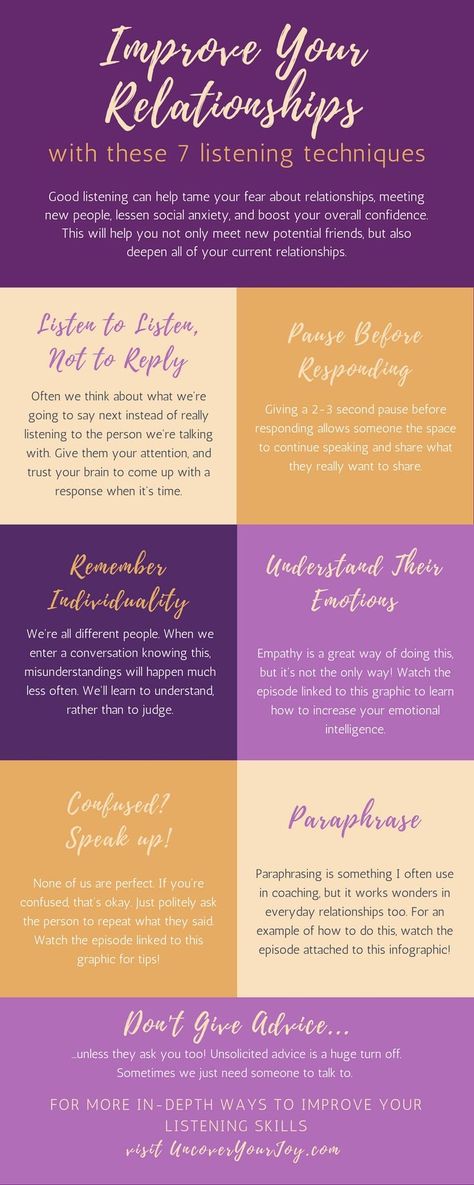 Physical touch goes a long way in keeping romance and connection alive in long-term relationships. Try to avoid physical touch routines, meaning the only physical touch in your daily life is a kiss goodbye or a hug hello (though these are also important gestures). In addition to your hellos and goodbyes, hug them unexpectedly, hold their hand in the car or while watching TV, or even just pat them on the arm to feel close. Physical closeness can translate to emotional closeness.
Physical touch goes a long way in keeping romance and connection alive in long-term relationships. Try to avoid physical touch routines, meaning the only physical touch in your daily life is a kiss goodbye or a hug hello (though these are also important gestures). In addition to your hellos and goodbyes, hug them unexpectedly, hold their hand in the car or while watching TV, or even just pat them on the arm to feel close. Physical closeness can translate to emotional closeness.
8. Learn your partner’s boundaries
Does your partner wish to be left alone when they’re upset? Do they mind that you want to text all day long, or do they prefer you call them when you’re apart at night? Is there a certain way they prefer to argue or certain topics they’re not comfortable discussing with you yet? These questions are simple, but the answers to them will help you understand your partner’s boundaries (and stop you from crossing them). Overall, your partner’s needs are most likely different from yours, and knowing their boundaries is the best way to respect them. Have conversations to explain your boundaries to each other, but also pay attention and ask questions to understand them better.
Have conversations to explain your boundaries to each other, but also pay attention and ask questions to understand them better.
View this post on Instagram
A post shared by Raff (@raffinee)
9. Laugh together
Relationships are just friendships with exclusivity. Loving each other is crucial, and liking each other is important too. While the life-partner stuff (like dividing chores) or the romantic stuff (like holding hands) might be top priorities to improve your relationship, remember that the friendship stuff is just as important. Laugh together at least once every day, whether it’s sharing a funny story that happened to you at the grocery store, bringing up an inside joke, or watching the show that makes you both laugh out loud. Laughing not only bonds us but also helps us remember that the point of being in a relationship is to enjoy the person we love.
10. Make time to focus on yourself
How we feel about ourselves is how we’ll act in a relationship. For example, if you lack confidence in yourself, you’ll look for assurance in your relationship, or if you don’t like to be alone with yourself, you’ll need to be around your significant other 24/7. To prevent any toxic behaviors, it’s essential to have a strong sense of self: Invest in a new hobby, make plans with some friends, and take steps in discovering who you are as a person. By falling in love with yourself, you’ll naturally become the best version of yourself for the person who is falling in love with you.
- Tweet
- Pin
7 Evidence-Based Approaches to Improve Your Relationship
Working to save a relationship can take a lot of work, but if you and your partner approach it from a place of empathy, you’d be surprised at the progress that you can make.
“Every couple argues to a certain degree,” says Dr. Elana Hoffman, a licensed clinical psychologist in Washington, D.C.
Elana Hoffman, a licensed clinical psychologist in Washington, D.C.
“However, it can start to feel hopeless if one or both people feel like things can never be resolved… and it’s also often indicative of one or both people feeling as though their needs are not being met.”
Here are some general themes to keep in mind when working to improve your relationship:
- Think about what could be fueling your partner’s present emotions beneath the surface.
- Don’t take things personally, even if negative emotions are directed toward you.
- Remember to verbalize gratitude and apologies.
- Be mindful of your own biases and scars from previous relationships.
- Ask open-ended questions.
- Practice active listening and reflective listening.
- Learn your mate’s love language, and become fluent.
If you look at this list and ask “But how?,” you might begin by trying these approachable tips.
Identify your emotional triggers
Everyone has their “Do Not Push” button in an argument — the one topic that can launch us completely into the irrational stratosphere of anger in mere seconds.
The reason that these things hit so differently is likely tied to a past hurt or trauma that you experienced.
For example, say that you grew up with an abusive parent who took advantage of the other hardworking parent. If you feel like your partner has stopped contributing to the housework lately, you may become disproportionately mad if they don’t clear the table after dinner.
Suddenly, something relatively insignificant like an unclean table is the launchpad for a major fight.
Learning to identify your emotional triggers, and more importantly, why you react to them, will help you become a better communicator. Self-reflection is key to anyone’s emotional growth and the more you can understand your reactions, the more productive your conversations could be.
Here’s a helpful primer on going from identifying your feelings to articulating them.
Know when to yield
One of the hardest things to do during a conflict is to stop and redirect the focus. We’ve all said the wrong thing that we wished we could take back after we weren’t so angry.
We’ve all said the wrong thing that we wished we could take back after we weren’t so angry.
Have you ever drafted a “strongly worded” email to a colleague in frustration, but after calming down, took some of the venom out of it before hitting the “Send” button?
Being able to brake, downshift, and reassess your feelings is a good way to maintain healthy social connections, so why shouldn’t you apply it to your romantic relationships, too?
If you’re in an argument with your partner that seems to be getting a little too heated, see if there’s an opportunity to hit pause, go for a walk, and revisit the issue once both of you have had a chance to breathe.
Be curious
Let’s be honest, your partner is a pretty special person to you. Otherwise, you wouldn’t have chosen to be with them. You were likely drawn to qualities in them that made them intriguing. Being intimate with someone means staying interested and ever-curious about who they are and how they think.
This kind of curiosity and interest can be applied during communication too. While it may be tough to do during a fight, you can take some time afterward to connect with your partner and objectively explore the choices they made and allow them to explore your thought process as well.
Sometimes exploring how communication devolved can navigate your choices the next time you two talk.
Become an expert in empathy
One of the earliest lessons that we learn growing up is to “put yourself in someone else’s shoes” because it introduced you to the concept of empathy.
Empathy is about more than just acknowledging someone’s feelings. It’s also about trying to understand how those feelings are influencing their actions.
It’s easy to lose sight of empathy in the heat of an argument because your partner’s point of view stands in the way of yours. If you could only make them see it your way, then the argument would be over. Right?
This kind of thinking stops you from showing empathy because it tries to simply remove your partner as an obstacle and doesn’t stop to question why they were pushing back in the first place.
“When someone feels listened to and empathized with, they’re more likely to continue to open up and share more, which leads to more intimacy and closeness overall,” explains Hoffman.
“When a person feels shut down, like they are never listened to… they will shut down over time. This can erode a relationship and result in very surface-level communication and increased emotional separation.”
Read between the lines
An argument between strangers is largely two-dimensional because you don’t know them and they don’t know you. One person hurls their insult, another may give them a piece of their mind, and then it usually fizzles out.
This isn’t the case for romantic partners who can bring years of baggage, expectations, resentment, and history into quarrels. Often with couples, what they’re arguing about on the surface isn’t what they are actually fighting about if we were to dig a little deeper.
“It can be difficult to identify what is underneath the surface of arguments about ‘trivial’ things,” explains Hoffman.
“Most of these arguments are actually about an unmet need, which is often that one or both people feel like they are not being taken care of in some way… In order to help identify what’s happening under the surface, couples need to think deeply about what they are really asking for, and communicate that.”
Be slow to anger, quick to listen
During a spat, tempers flare, egos inflate, and a battle gets underway. A heated argument can sometimes feel like going to war. But, as we rush to fortify our defenses and deploy our secret weapons, are we stopping to actually hear our partners out?
When talking to your mate, it’s easy to fall back on old exaggerations or hold our partner’s past behavior against them. We might even get mad all over again when we think back to their past actions.
The problem is that we allow our anger to cloud out our partner in the present. Even if they may have acted selfishly in the past, it doesn’t mean that selfishness is what is driving them today.
When we don’t listen to our partners, we deny them the opportunity to be validated and feel loved. Your relationship can’t move into the future if you’re still fighting someone from the past.
You know them best, why not anticipate their needs?
In order for a relationship to heal, both partners need to actively want to work toward improving their relationship.
Doing the work is hard, but it’s a hardship that you must frame as a positive challenge, otherwise you’ll likely be less motivated to keep working when the relationship hits a speed bump.
You might try challenging yourself by anticipating what their needs are and what they may need from you in the future. If you know your partner is going into a challenging work week, for example, you can prepare yourself for being extra supportive during that time.
In fact, a 2018 study showed that when a partner was able to explain a stressful situation to an attentive, listening partner, they were more likely to report higher levels of satisfaction with their relationship.
If you want to strengthen your relationship, don’t just passively listen to your partner — let them know that they’re being heard.
“People often jump to problem-solving and skip the empathy part because they want to fix it,” explains Hoffman.
“The intentions are good because it’s hard to see someone you love in pain… however, often a person just wants their partner to listen and empathize.”
It’s possible to improve a relationship if both partners still believe that there’s a rewarding partnership underneath all the communication breakdowns.
You might try to think back to what initially drew you to your partner in the first place and what about them captured your attention and excited you. Take that spirit of fascination and curiosity into your intimacy and points of contention. You can seek to understand and foster empathy.
You could also make a point to hear them out, pause before reacting in anger, stay in the present, and communicate your feelings, your gratitude, and your apologies clearly.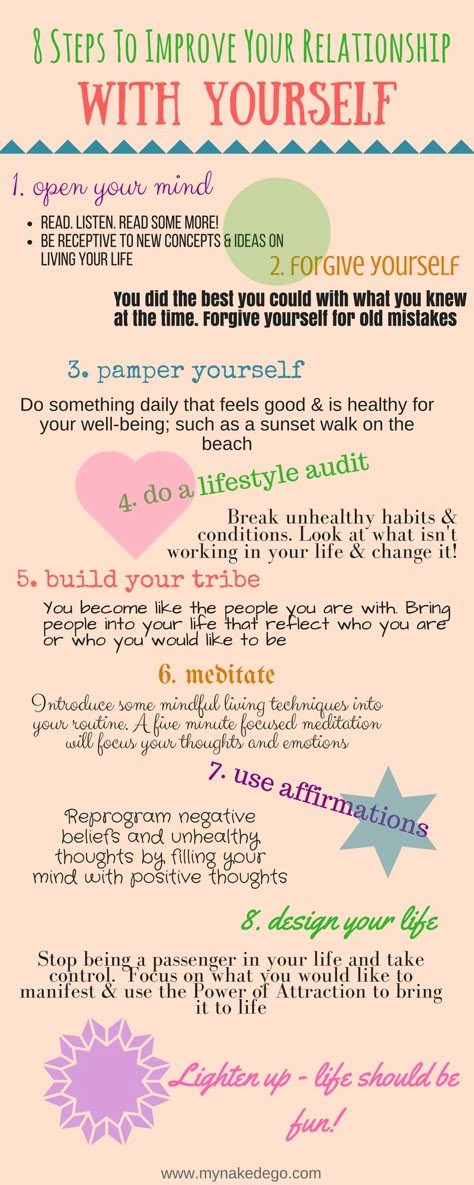
You both deserve to feel validated.
How to strengthen relationships in a couple. What is the secret of harmonious relationships?
You have heard more than once, or maybe you yourself repeated the phrase: “Relationships are not easy!”. I would like to clarify. In theory, relationships themselves are very simple, because they develop in a natural rhythm according to the will of feelings: they met, fell in love, decided to be together. But the people involved in a relationship can make it difficult - and even very difficult. The fact is that we are not too pleased with the idea that "relationships need to be worked on." What kind of nonsense is this, but what about love? Why is a harmonious union, which arose from a great and bright feeling, not able to magically work by itself, like a well-oiled machine? Unfortunately, even the heroes of fairy tales do not hope for this. Relationships really take effort, and they can be strong and happy - if you know the right life hacks. A romantic connection can be strengthened and improved by working in two ways:
A romantic connection can be strengthened and improved by working in two ways:
- demanding more of myself,
- demanding more from a partner.
No magic is required, everything is extremely simple and is set out below in ten tips, following which you get a sure chance to extend your relationship to the "forever" mode.
1. Be realistic.
True love is not at all like romantic love, which makes us not notice the shortcomings of a partner. It's a choice. This is the constant support of another person, regardless of the circumstances. This is an understanding that your relationship will not always be cloudless. This is the need to deal with the problems of a partner, his fears and thoughts, even when you don’t feel like it at all. Such love is more prosaic, it requires much more effort from partners. But still, it gives a person much more. After all, in the end, it brings real happiness, and not another short-lived euphoria.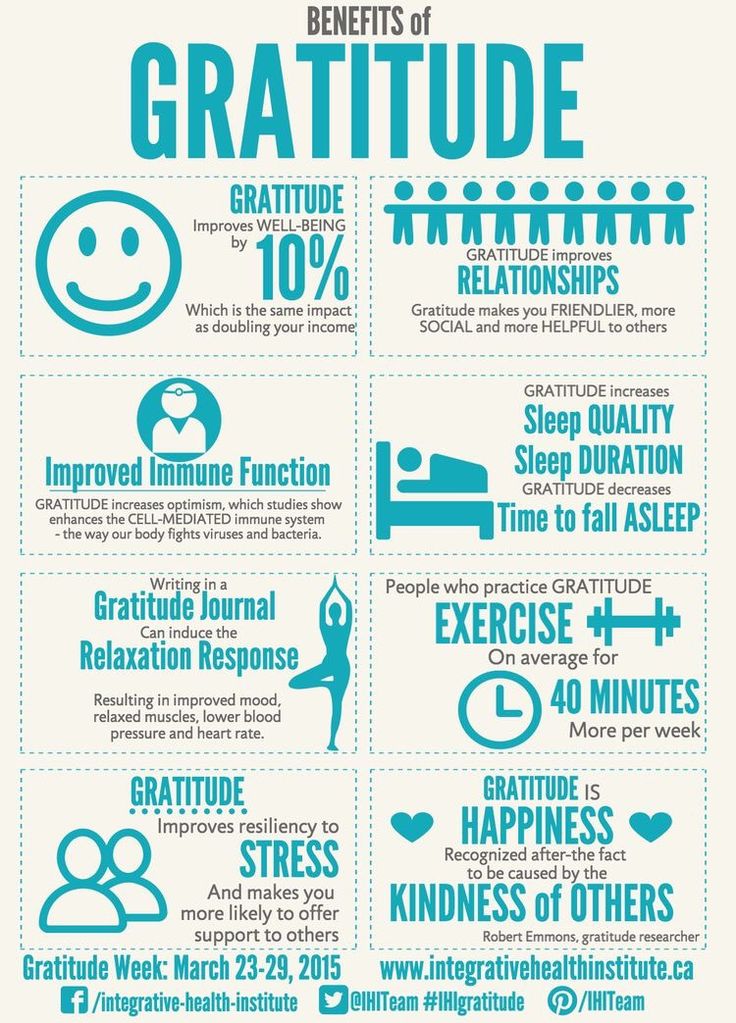
2. Respect each other.
This is the main thing in a relationship. Not attraction, not shared goals, not religion, not even love. There will be moments when you start to feel like you don't love each other at all anymore. But if you lose respect for your partner, you won't be able to get him back.
Communication, no matter how open and frequent it may be, in any case, someday will come to a standstill. Conflicts and insults cannot be avoided.
The only thing that will save your relationship is unwavering respect. Without it, you will always doubt each other's intentions, judge your partner's choices, and try to limit their independence.
In addition, you also need to respect yourself. Without self-respect, you will not be able to feel that you deserve the respect of a partner. You will constantly try to prove that you deserve it, and as a result, you will only harm your relationship.
- Never complain about your partner to your friends.
 If you are unhappy with something in his behavior, discuss it with him, and not with friends and relatives.
If you are unhappy with something in his behavior, discuss it with him, and not with friends and relatives. - Respect that your partner may have interests, hobbies and views that are different from yours.
- Consider the opinion of your half. Remember, you are one team. If someone alone is dissatisfied, then you need to look for a solution to the problem together.
- Do not keep everything to yourself, discuss any problems. You should not have taboo topics of conversation.
Respect is directly related to trust. And trust is the foundation of any relationship (not just romantic ones). Without it, there can be no feeling of intimacy and calmness.
3. Discuss all problems.
If something does not suit you, be sure to discuss it. No one will fix your relationship for you. The main thing for maintaining trust is absolute honesty and openness of both partners.
- Share your doubts and fears, especially those you don't share with anyone else.
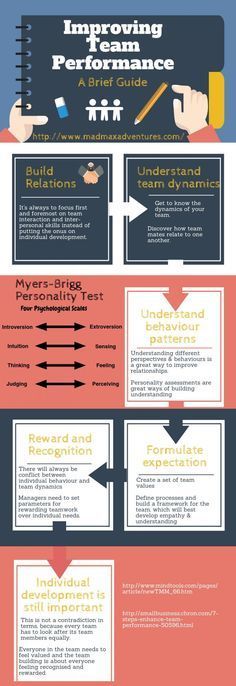 This will help not only heal some emotional wounds, but also better understand the partner.
This will help not only heal some emotional wounds, but also better understand the partner. - Keep your promises. The only way to restore trust is to keep your word.
- Learn to distinguish between your partner's suspicious behavior and your own complexes. Usually during quarrels, one person thinks that his behavior is completely normal, while another seems categorically wrong.
Trust is somewhat like a porcelain plate. If it falls and breaks, then with great difficulty it can still be glued back together. If you break it a second time, there will be twice as many fragments, and it will also take more time and effort to put them together. But if you drop the plate over and over again, in the end, it will break into such small pieces that it will be impossible to glue them together.
4. Don't try to control each other.
We often hear that relationships require sacrifice. There is some truth in this: sometimes you really have to give up something. But if both partners constantly sacrifice themselves, they are unlikely to be happy. Such a relationship in the end will only harm them both.
But if both partners constantly sacrifice themselves, they are unlikely to be happy. Such a relationship in the end will only harm them both.
Each person should be an independent person with their own views and interests.
Trying to control your partner to make him happy (or allowing you to control your own actions) will not achieve anything good.
Some are afraid to give their partner freedom and independence. The reason for this may be a lack of confidence or self-doubt. The less we value ourselves, the more we will try to control our partner's behavior.
5. Be prepared for both of you to change.
Over time, you and your partner will change - this is completely natural. Therefore, it is important to always be aware of the ongoing changes and treat them with respect.
If you plan to spend several decades together, you need to be prepared for difficulties and unforeseen situations.
Significant changes experienced by many couples may include a change in religion and political views, a move to another country, or the death of relatives (including children).
When you start dating, you only know what this person is now. You have no way of knowing what it will be like in five or 10 years. Therefore, you need to be prepared for the unexpected. Of course, it's not easy. But the ability to quarrel properly can help here.
6. Learn to quarrel.
Psychologist John Gottman identified four signs of behavior that indicate a potential breakup:
- Character criticism (“You are stupid” instead of “You acted stupidly”).
- Shifting blame.
- Insults.
- Avoiding a quarrel and ignoring a partner.
Therefore, it is worth learning how to quarrel properly:
- Do not remember previous scandals during one quarrel. This will not solve anything, but will only aggravate the situation.

- If the fight is heating up, stop. Go outside and walk around a bit. Return to the conversation only when you cool down.
- Remember, being right in a quarrel is not as important as feeling that you were listened to with respect.
- Do not try to avoid quarrels. Express your pain and admit what worries you.
7. Learn to forgive.
Do not try to change your partner - this is a sign of disrespect. Accept the fact that you have disagreements, love the person in spite of them, and try to forgive.
But how can one learn to forgive?
- When the quarrel is over, it doesn't matter who was right and who was wrong. Leave all conflicts in the past, and do not remember them every month.
- No need to keep score. Relationships should not have winners and losers. Everything should be done and given free of charge, that is, without manipulation and expectation of something in return.
- When a partner makes a mistake, separate his behavior from his intentions.
 Do not forget that you appreciate and love in a partner. Everyone makes mistakes. And if a person made a mistake, this does not mean at all that he secretly hates you and wants to leave.
Do not forget that you appreciate and love in a partner. Everyone makes mistakes. And if a person made a mistake, this does not mean at all that he secretly hates you and wants to leave.
8. Be pragmatic
Any relationship is imperfect, because we ourselves are imperfect. Therefore, be pragmatic: determine what each of you is good at, what you like and dislike to do, and then assign responsibilities.
In addition, many couples are advised to pre-determine some rules. For example, how will you share all expenses? How much are you willing to borrow? How much can each partner spend without consulting the other? What do you need to buy together? How will you decide where to go on vacation?
Some even hold "annual reports", during which they discuss the conduct of business and decide what to change in the economy. This, of course, sounds trite, but this approach really helps to be aware of the needs and requirements of a partner and strengthens relationships.
9. Mind the little things.
Simple signs of attention, compliments and support mean a lot. All these little things accumulate over time and affect how you perceive your relationship. Therefore, many advise to continue to go on dates, go out somewhere for the weekend and be sure to find time for sex, even when you are tired. Physical intimacy not only keeps a relationship healthy, it even helps mend it when things go wrong.
This becomes especially important with the advent of children. In modern culture, they are almost prayed for. It is believed that parents should sacrifice everything for them.
The best guarantee that children will grow up healthy and happy is a healthy and happy relationship between parents.
So let your relationship always come first.
10. Learn to catch a wave.
Relationships are like waves on the sea. Such waves are different emotions, ups and downs in a relationship. Some last only a few hours, others several months or even years.
Some last only a few hours, others several months or even years.
The main thing is not to forget that these waves by themselves practically do not reflect the quality of the relationship. They are influenced by many external factors: loss or change of job, death of relatives, moving, financial difficulties. You just need to catch the wave with your partner, wherever it takes you.
It is important to understand that we ourselves can shape our life attitudes, emotions and feelings and consciously approach our relationships. Then it turns out that the secret of a long life together is not such a secret after all. Be open, grateful and focus on your love for each other, not on negative emotions!
Department of psychological support and career guidance,
tel.79-567.
How to strengthen relationships: 10 wise tips for all time
Psychology
The phrase that everyone repeated at least once in their life: “Relationships are not easy!” I want to clarify. In theory, relationships themselves are very simple, because they develop in a natural rhythm according to the will of feelings: they met, fell in love, decided to be together. But the people involved in a relationship can make it difficult - and even very difficult.
In theory, relationships themselves are very simple, because they develop in a natural rhythm according to the will of feelings: they met, fell in love, decided to be together. But the people involved in a relationship can make it difficult - and even very difficult.
The thing is, we don't like the idea that "relationships need to be worked on." What kind of nonsense is this, but what about love? Why is a harmonious union, which arose from a great and bright feeling, not able to magically work by itself, like a well-oiled machine?
Unfortunately, even the heroes of fairy tales do not hope for such a thing. Relationships really take effort, and they can be strong and happy - if you know the right life hacks. A romantic connection can be strengthened and improved by working in two ways:
- demanding more from yourself,
- demanding more from a partner.
No magic is required, everything is extremely simple and is set out below in ten tips, following which you get a sure chance to extend your relationship to the "forever" mode.
1. Don't sacrifice your personal life
Not in the sense of "keep dating with a stable partner" - that kind of freedom is hard to reconcile with serious intentions. You can burn with sincere passion for each other, but this does not mean that the rest of your life should be dissolved in selfless adoration. Do not forget your friends and loved ones, do not give up evening yoga, Saturday sessions at the spa and Sunday breakfasts with your sister. Take care of your independence, do not drown your personality in love, do not get into the habit of asking for time off and reporting - having lost the status of single, you can still do whatever you want, whenever you want. It invigorates, maintains self-esteem and saves relationships from routine and boredom.
A still from the film “Tenderness”
2. Be honest with your feelings
Tell yourself the truth and nothing but the truth: are you really happy? Satisfied? Physically, emotionally, mentally? Yes, this is not easy - the female nature is prone to sacrificial compromises, but these three points are crucial.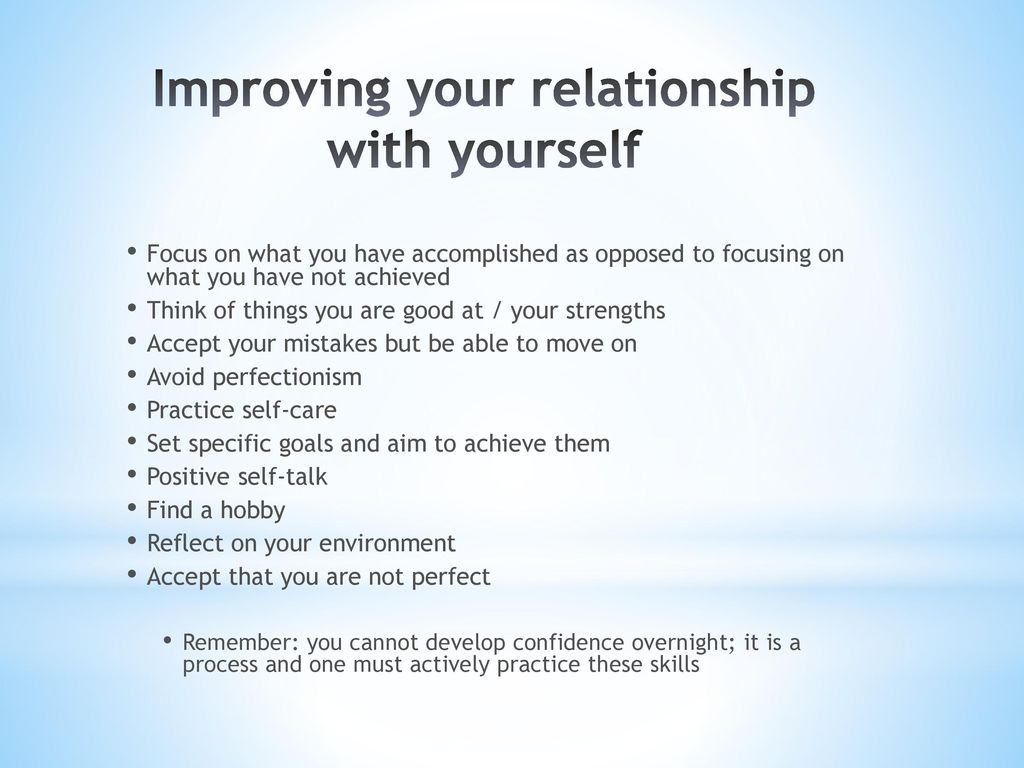 If you are connected only by mind-blowing sex, sooner or later the problem “what about talking?” Will arise. If you entertain each other with a play on words, but at the same time, intimacy slips into a “C grade” - the prognosis is also unfavorable. Or are you satisfied with both the mind and physiology, but he avoids talking about love and has never given a flower? Obviously, this will soon cease to suit you, too. The secret of strong reciprocity is in a strong and natural connection on all points; therefore, make sure that everything in your relationship is the way it is, or at least goes towards it. In other scenarios, think about ways to retreat.
If you are connected only by mind-blowing sex, sooner or later the problem “what about talking?” Will arise. If you entertain each other with a play on words, but at the same time, intimacy slips into a “C grade” - the prognosis is also unfavorable. Or are you satisfied with both the mind and physiology, but he avoids talking about love and has never given a flower? Obviously, this will soon cease to suit you, too. The secret of strong reciprocity is in a strong and natural connection on all points; therefore, make sure that everything in your relationship is the way it is, or at least goes towards it. In other scenarios, think about ways to retreat.
A still from the film "My King"
3. Do not pursue or torment with jealousy
Oh, that eternal female question: "Where are you?", piercing men like a voodoo spellcaster's needle. If you bombard him with messages 24/7, call him a hundred times a day, and in general your world revolves only around him, it's time to admit that your feelings are mutating into addiction.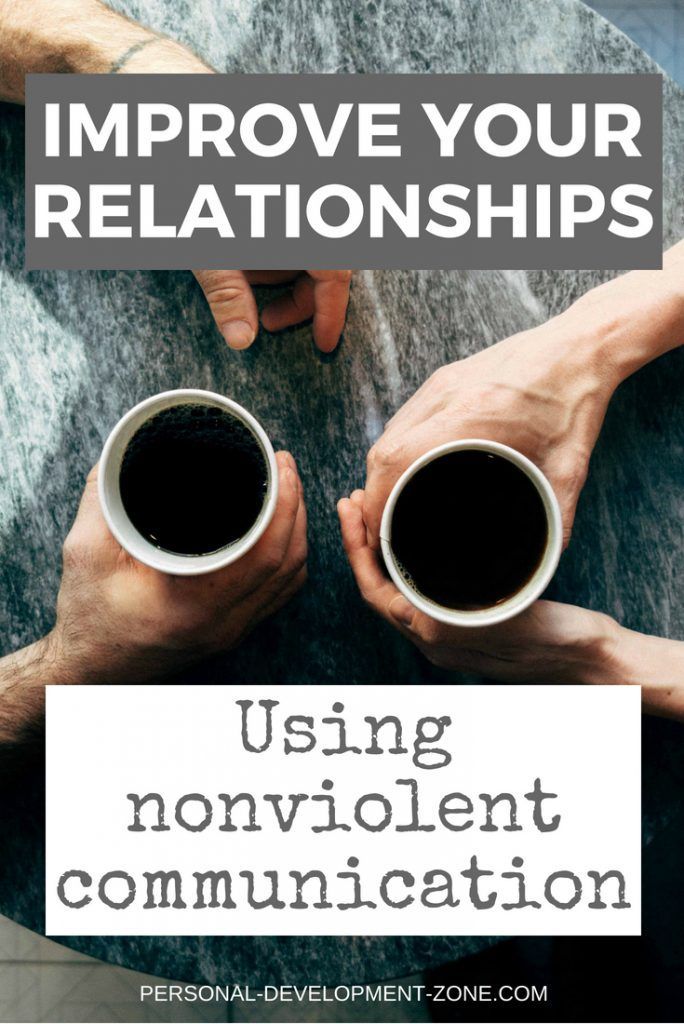 Persecution strangles men. This approach will not help to keep anyone, acting exactly the opposite. Be more confident in yourself, do not worry, he will not go anywhere. And even if you got such a hot handsome man that it's hard not to worry about this topic, convince yourself that you will be fine anyway. Disable the chase option. Once and forever. Remember that you are the fire. Let him chase you, it's much more fun.
Persecution strangles men. This approach will not help to keep anyone, acting exactly the opposite. Be more confident in yourself, do not worry, he will not go anywhere. And even if you got such a hot handsome man that it's hard not to worry about this topic, convince yourself that you will be fine anyway. Disable the chase option. Once and forever. Remember that you are the fire. Let him chase you, it's much more fun.
A still from the movie One Day
4. Love and take care of yourself
Many women complain that they either cannot find the right partner or are always attracted to specimens who treat them the wrong way. The reason is low self-esteem: we attract the level of love that we experience for ourselves. It is impossible to burn yourself with the napalm of self-criticism on a daily basis and expect others to treat you like a queen. Believe me, men easily read it.
Take a positive look at your qualities and start loving yourself for who you are right now. And if you love yourself, then take care of yourself - stay healthy, go to bed on time, have a relaxing bubble bath, or maybe a spontaneous bachelorette party tonight. It is very important to pamper yourself by nourishing the soul outside of the relationship, otherwise you will have nothing to give.
And if you love yourself, then take care of yourself - stay healthy, go to bed on time, have a relaxing bubble bath, or maybe a spontaneous bachelorette party tonight. It is very important to pamper yourself by nourishing the soul outside of the relationship, otherwise you will have nothing to give.
Still from the film "Longtime Lovers"
5. Do not try to please and adapt
The desire to please is based on the expectation of positive feedback: love, kindness, gratitude. However, the world is unnecessarily generous with negativity, and people will gladly use you, recognizing the need to give themselves without reserve. Relationships are a two-way street: pamper yourselves, but make sure you're pampered too. Strive for a healthy balance of self-giving and selfishness. And please, don’t be fooled by the fear of loneliness, agreeing to options from the series “let it be at least that way” - this approach does not bring happiness. I am not one of those who are waiting for Mr.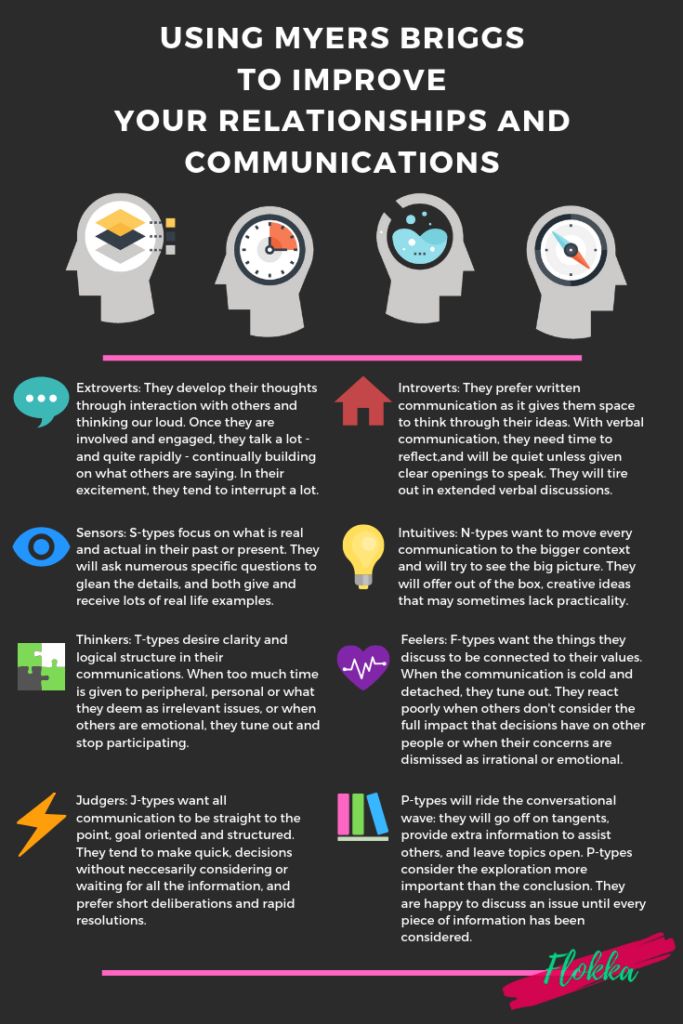 Perfection, but I firmly believe that each of us can count on the “what we need” option.
Perfection, but I firmly believe that each of us can count on the “what we need” option.
A still from the movie "One Encounter"
6. Don't avoid problems
Nobody likes conflicts. I mean, there are certainly people who are entertained by strife, but apparently they are in the minority. But what happens if the partners, not wanting to sort things out, constantly turn on avoidance mode? Nothing good. If you avoid problems for years, they will accumulate, and one day you will wake up 25 years later and realize that you will never be able to sort them out, because you have long forgotten how this huge pile began. Don't suppress negative (or positive) emotions. Talk to your partner about any issues that are bothering you. Firstly, you are a team, which means that we must work together to overcome adversity. And secondly, you always deserve respect and the right to speak out.
A scene from the movie The Lovers
promising stage.
 Your connection needs care and attention, confessions and walks, surprises and gifts, romantic dates and cozy home evenings. Be creative, spare no energy to feed your feelings.
Your connection needs care and attention, confessions and walks, surprises and gifts, romantic dates and cozy home evenings. Be creative, spare no energy to feed your feelings. Still from the movie Revolutionary Road
8. Apply equal effort
There is an opinion that relationships require giving back 50/50. What nonsense, only 100/100! Both partners must put 100% effort every day to maintain the relationship at the right degree and dynamics. It is difficult to expect harmony from the connection "100 to 20", "100 to 50" or even "100 to 99". You must be equal. If your alliance is out of balance, you need to talk about it in order to get back on track.
Still from the film Water for Elephants
9. Be generous with empathy and appreciation
As a team, you cannot oppose each other. So, you can not take into account only your own point of view. Whether you're right or wrong, accept the reality of the difference in perception. If your partner sees the situation differently, try to understand and, most importantly, let him know that you respect his view of things. What else? Be a good listener and feel free to be grateful. Even if he just loaded the dishwasher, tell him "thank you". Thank him for what he does for you and he will want to do it again to make you happy. And, of course, he will be grateful in return.
If your partner sees the situation differently, try to understand and, most importantly, let him know that you respect his view of things. What else? Be a good listener and feel free to be grateful. Even if he just loaded the dishwasher, tell him "thank you". Thank him for what he does for you and he will want to do it again to make you happy. And, of course, he will be grateful in return.
A still from The English Patient
10. Don't try to change him
It's no secret that many women believe they can change their lives. “If I make him lose 10 kilos, he will be much more attractive”, or “If I can wean him from video games, I will be happy”, or “Once we get married, he will change for the better” - all these internal insinuations have no relationship to real love and long-term happiness. If you don't like the way he looks, talks, or kisses right now, without thinking of any miraculous changes, you shouldn't be with him.














